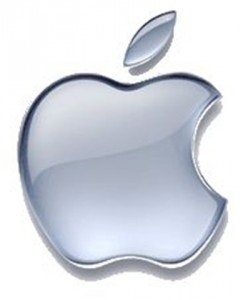
In terms of the smartphone platform, Google Inc (NASDAQ:GOOG)’s Android left its peers in the dust with a whopping 52% market share (71.1 million subscribers), while Apple’s operating platform has 53.3 million subscribers, accounting for 39% of the total U.S. market. However, in the past three months, Google Inc (NASDAQ:GOOG) has lost 1.4% market share to Apple Inc. (NASDAQ:AAPL) and Microsoft Corporation (NASDAQ:MSFT). While the market share of Microsoft’s operating platform increased 0.1%, Apple Inc. (NASDAQ:AAPL)’s platform has gained the most market share of 2.7%. Both iPhone and Android phones combined represented as much as 91% of the total smartphone market in the U.S.
The iPhone is really the market leader in the U.S. However, the global market leading position belongs to Samsung. According to IDC, in the first quarter of 2013 Samsung shipped 70.7 million smartphones, accounting for 32.7% of the global smartphone market share. Apple ranked second with only 37.4 million unit shipments, accounting for 17.3% of the global market. Interestingly, while Apple Inc. (NASDAQ:AAPL)’s unit shipments increased by only 6.6% compared to the first quarter last year, Samsung’s unit shipments experienced a year-over-year growth of as much as 60.7%.
Samsung’s initiatives
Indeed, Samsung’s smartphones are taking over the world, and the company has remained quite innovative. For instance, it has been introducing new smartphone version Galaxy S4. The S4 has a great 5-inch display with a full HD resolution screen and a super fast processor. Interestingly, Samsung seems to get its new S4 for government usages. Its Knox-enabled phones, with a high level encryption and a separation between personal and work data, was the first Android phone that met U.S. government security standards. Samsung is paving the way for much stickier type of customers, governments and enterprises. JK Shin, Samsung Mobile President commented
We are very pleased to announce that the U.S. Department of Defense has approved Samsung Knox-enabled devices for use in DoD networks. This approval enables other government agencies and regulated industries such as health care and financial services to adopt Samsung Galaxy smartphones and tablets. This is a significant milestone for Samsung as we work to grow our relationships within government and large corporate enterprises.
Quantitatively speaking, I was impressed with Samsung’s consistent double-digit return on invested capital in the past five years. In 2008, its return on invested capital was around 10%. In 2012, its ROIC moved up to 17.76%. Samsung is trading at around $1,350 per share, with a total market cap of $176.6 billion. The market values Samsung quite cheaply, at only 3.3 times EV/EBITDA.


